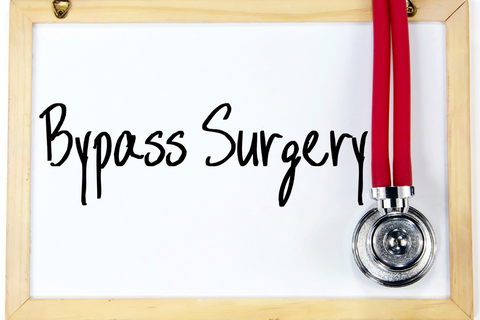Table of Contents
Gastric bypass surgery is a widely used procedure to help people struggling with obesity to lose weight and improve their health. This surgical intervention has proven to be effective in many cases, reducing the risk of obesity-related health issues such as type 2 diabetes, hypertension, and sleep apnea. While gastric bypass can offer significant benefits, it is essential for you to be aware of the potential complications that may arise post-surgery.
After gastric bypass surgery, you may experience both short-term and long-term complications. Some of the common short-term complications include bleeding, infections, and blood clots. These can be managed and addressed by your medical team if recognized promptly. On the other hand, long-term complications may require further interventions and lifestyle adjustments to maintain your overall health and well-being.
In this article, we will discuss the various complications that can occur after gastric bypass surgery, their impact on your health, and the steps you can take to minimize the risks. Being well-informed will empower you to make educated decisions about your health and help you maintain the best possible quality of life following your gastric bypass procedure.
Are Complications After Gastric Bypass Common?
Gastric bypass surgery is a popular and effective weight loss procedure. Like any surgery, however, you should be aware that complications may arise. While most complications are rare and can be managed, it's important to know what to look for and how to prevent them.
In the early days following your surgery, you might experience common issues such as pain or discomfort near the surgical site, nausea, and vomiting. These symptoms usually resolve on their own or can be managed with the help of your healthcare team.
More severe complications, although rare, can occur. One such complication is a leakage at the site of the gastrojejunal anastomosis, the new connection between your stomach and small intestine. You should report any persistent abdominal pain, fever, or unexpected weight loss to your surgeon, as this may indicate a leakage.
Another potential complication is a bowel obstruction, which can be caused by scar tissue or a kink in the intestines. Pay attention to your bowel movements and watch for signs of obstruction, such as constipation, bloating, and severe abdominal pain. If you experience these symptoms, you should seek medical attention immediately.
Infections can also occur after gastric bypass surgery. To minimize this risk, follow your surgeon's instructions for wound care and report any fever, pus, or increased redness or swelling at the wound site.
In the long term, you may experience malnutrition or deficiencies in certain vitamins and minerals, such as iron, calcium, and vitamin B12. To prevent these deficiencies, follow the recommended diet provided by your healthcare professional and take prescribed supplements.
While this list may seem daunting, remember that the overall risk of complications is relatively low, and the majority of patients experience excellent outcomes after gastric bypass surgery. By following your doctor's recommendations and being vigilant about potential complications, you can minimize your risk and pave the way for a healthier life.
11 Complications That Can Occur After Surgery

Dysphagia
After gastric bypass surgery, you may experience difficulty swallowing, known as Dysphagia. This can be due to swelling, inflammation, or narrowing of the connection between your stomach and esophagus. It's essential to consult your surgeon if you're having trouble swallowing, as they will need to assess and manage the issue.
Constipation
Constipation is a common complication following weight loss surgery. It can be caused by a change in diet, reduced fluid intake, and lack of physical activity. To prevent constipation, make sure to stay hydrated, eat enough fiber, and engage in regular physical activity.
Diarrhea
Diarrhea may occur after bariatric surgery, particularly if your body struggles to adjust to the changes in your digestive system. Speak with your surgeon or nutritionist if diarrhea persists, as they may suggest dietary adjustments to help manage this complication.
Malnutrition
Malnutrition can result from vitamin and mineral deficiencies caused by reduced nutrient absorption after weight loss surgery. Common deficiencies include iron, vitamin D, and calcium. To prevent malnutrition, make sure to follow your dietitian's guidance and take the recommended supplements.
Excess Skin
Following significant weight loss, you may have excess skin, which can cause discomfort and negatively affect your self-esteem. In such cases, consult with your surgeon about potential corrective surgeries to remove the excess skin.
Gallstones
Weight loss after bariatric surgery may increase the risk of gallstones. Symptoms include abdominal pain, nausea, and vomiting. If you suspect gallstones, contact your healthcare provider for diagnosis and management.
Gut Leak
Gut leaks, or anastomotic leaks, occur when there's an opening in the gastrointestinal connections made during surgery. This can lead to peritonitis, causing symptoms such as fever, abdominal pain, nausea, and vomiting. Report any of these symptoms to your surgeon immediately.
Gut Blockage
Small bowel obstruction is another potential postoperative complication, which might be caused by adhesions, internal hernias, or twists in the intestine. Symptoms include abdominal pain, vomiting, and fever. Seek prompt medical attention if you suspect a gut blockage.
Infection
Infection is a risk following any surgery, including gastric bypass. Be on the lookout for symptoms such as redness, swelling, fever, or discharge from the surgical site. Contact your healthcare provider if you suspect an infection.
Blood Clots
Blood clots, or deep vein thrombosis (DVT), can develop after surgery due to reduced mobility. If a clot travels to the lungs (pulmonary embolism), it can be life-threatening. Quickly report symptoms like leg pain, swelling, or difficulty breathing to your healthcare provider.
Death
While relatively rare, the mortality rate after gastric bypass surgery remains a serious concern. The risk of death is higher in individuals with preexisting conditions or complications such as blood clots or infections. It is crucial to follow your surgeon's instructions and attend all follow-up appointments to minimize this risk.
Potential Long-Term Complications
Gastric bypass surgery can be a life-changing procedure for many, but it's important to remember that it also carries potential risks. While you may be aware of the short-term complications, such as infection and bleeding, there are also some long-term complications and concerns you should be aware of.
- One potential long-term risk is malnutrition. Since gastric bypass surgery alters your digestive system, it can lead to difficulties in absorbing nutrients, such as vitamins, minerals, and proteins. To prevent malnutrition, you'll need to follow a strict diet plan and take vitamin supplements as recommended by your healthcare team. Keep regular check-ups to monitor your nutritional status and ensure you're maintaining a balanced diet.
- Another issue some patients face is dumping syndrome. This occurs when food, especially sugar, moves too quickly from your stomach to your small intestine. Symptoms may include nausea, vomiting, dizziness, bloating, and diarrhea. You can minimize the risk of dumping syndrome by adjusting your diet and eating habits, such as consuming smaller meals, avoiding high-sugar foods, and incorporating more protein into your diet.
Gallstones are another potential long-term complication after gastric bypass surgery. Rapid weight loss can increase your risk of developing gallstones. Your healthcare provider may recommend taking medication to dissolve gallstones or undergoing a procedure to remove your gallbladder if you experience this issue.
Some individuals may develop an ulcer at the site where the small intestine is connected to the stomach. Signs of an ulcer may include abdominal pain or discomfort, nausea, and vomiting. Consuming a proper diet, taking prescribed medications, and avoiding smoking and alcohol can help manage and reduce the risk of ulcers.
Lastly, some patients may experience changes in bowel habits, such as constipation or diarrhea. It's essential to follow your healthcare team's guidelines on monitoring these changes and incorporating specific habits, such as staying hydrated, consuming enough fiber, and engaging in regular exercise to alleviate symptoms.
As you can see, several potential risks may accompany gastric bypass surgery. By staying vigilant, working closely with your healthcare team, and adopting the recommended lifestyle changes, you'll be better equipped to manage these long-term complications and maintain your health.
How to Reduce the Possibility of Complications

When undergoing gastric bypass surgery, it's essential to know how to reduce the possibility of complications. The following suggestions will help guide you in making the best decisions for your health.
Choose a skilled surgeon: One of the key factors in minimizing complications is selecting a surgeon with a high level of expertise in gastric bypass procedures. Their experience and skill will play a big role in the success of your surgery and the prevention of possible complications.
Accurate diagnosis: Make sure your surgeon and healthcare team provide a thorough diagnosis before the procedure. This will help identify any potential risks or underlying conditions that could lead to complications post-surgery.
Preparation: Taking steps to prepare yourself physically and mentally for surgery can also lower the risk of complications. This may include losing some weight before the procedure, quitting smoking, and attending counseling sessions to address any psychological concerns.
Proton pump inhibitors: Your healthcare provider may prescribe proton pump inhibitors (PPIs) to reduce the production of stomach acid, which can help prevent complications such as ulcers. Be sure to follow your doctor's instructions when taking these medications.
Deep breathing exercises: Practice deep breathing exercises before and after your procedure to improve your lung function and promote healing. Doing this can help reduce the risk of complications, such as blood clots and pneumonia.
In conclusion, following these guidelines can significantly lessen the possibility of complications after gastric bypass surgery. Always consult with your healthcare team if you have any concerns or questions about the procedure and your recovery.
Also Read: Late Complications of Bariatric Surgery (Long-Term Risks)



 Order Free Sample
Order Free Sample





